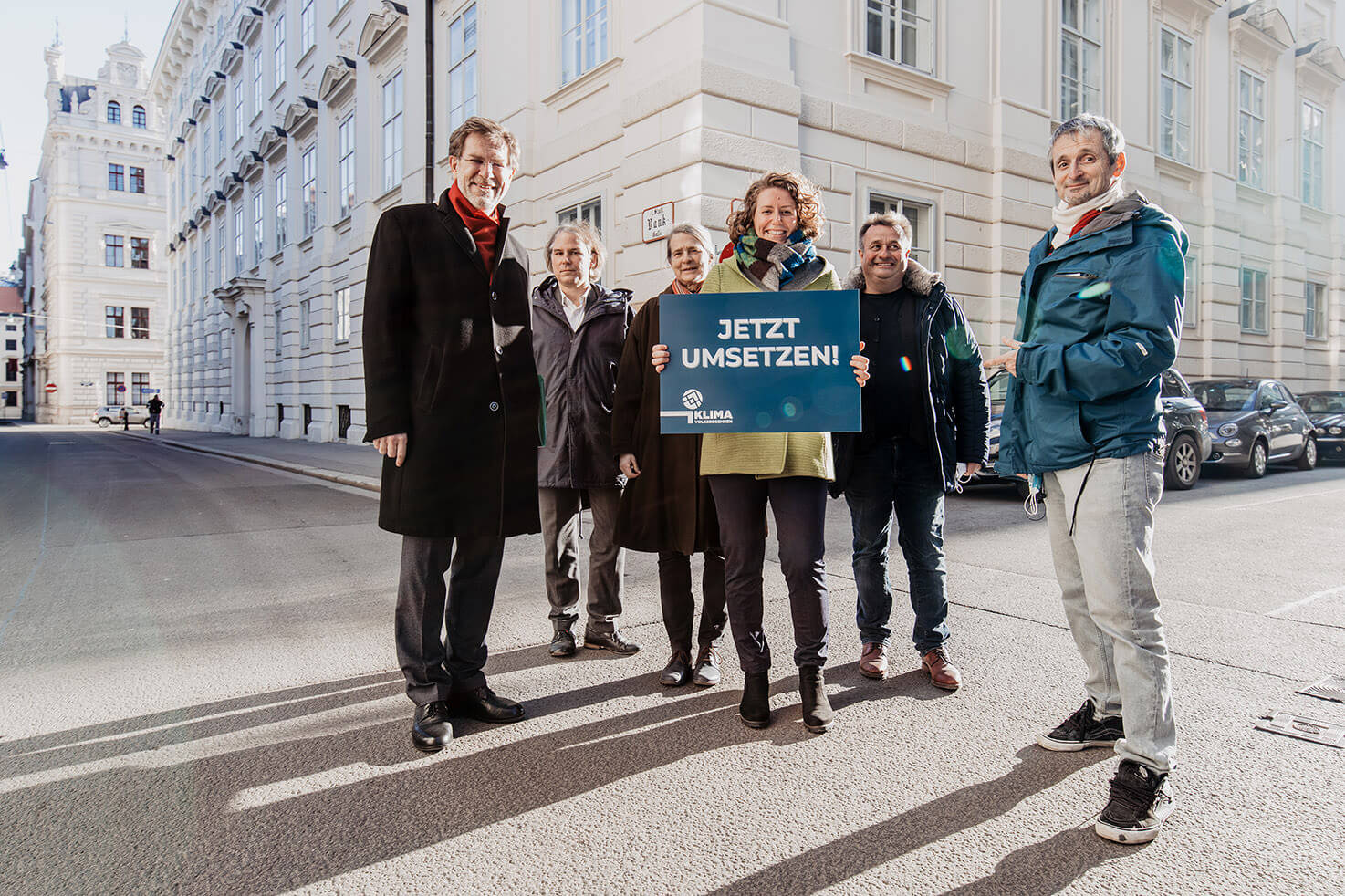Federal government wants to establish climate cabinet and climate council
On Tuesday, March 9, 2021, the third environmental committee took place in parliament. An "Austrian Climate Cabinet" is to be established with the participation of members of the federal and state governments, a scientific "Climate Advisory Council" and a "Citizens' Climate Council".
In December, expert hearings debated the pros and cons of a fundamental right to climate protection in the constitution as well as climate-damaging greenhouse gases. As already reported, in January the discussion was expanded to include the topics "Shaping the future: Making mobility and energy sustainable".
R.U.S.Z. supports the climate people's petition fully since the first hour, is pleased together with the initiators about the parliamentary stage success, but demands all the more clearly a real conversion of concrete measures.
Demands of the climate petition signed by 380,590 Austrians:
- Anchoring climate protection in the constitution
- Binding reduction path for CO2 emissions
- Establishment of a climate audit office
- Eco-social tax reform
- Complete dismantling of climate-damaging subsidies
- All new laws and regulations are to be reviewed by an independent body for their climate compatibility, and additional budget funds are to be made available for environmentally friendly mobility and sustainable energy generation.
The Austrian People's Party (ÖVP) and the Greens want to meet the demands of the referendum, but the opposition misses concrete implementation steps and obligations. The petition for a referendum has contributed a great deal to the intensification of the parliamentary discussion, committee chairman Lukas Hammer (Greens) thanked for the constructive discussions on the topic of climate protection.
Adopted government resolution contains proposals for measures to implement the demands of the climate popular initiative:
- Establishment of an "Austrian Climate Cabinet" chaired by the Federal Chancellor and the Climate Protection Minister.
- Climate targets and pathways should be enshrined in law, and a scientific "climate council" to verify compliance with the CO2 budget should be enshrined in the constitution.
- The parliamentary budget service is to contribute to cost efficiency with analyses and any new and existing legislation is to be subjected to a binding climate check.
- The aim is to phase out oil, coal and fossil gas by 2040, and the
- nationwide provision of climate-friendly mobility through rapid implementation of the 1-2-3 ticket.
- "Citizens' Climate Council" as a participatory process to discuss concrete proposals for action.
- Pushing forward of the eco-social tax reform
- Climate Responsibility Fund
- Measures for the transformation of agriculture and forestry
- Evaluation of the existing funding landscape
- In addition, a study is to be commissioned to identify the possibilities of anchoring a fundamental right to climate protection in constitutional law.
Climate Council
Leonore Gewessler, as the responsible minister, was pleased with the motion for a resolution, in which central demands of the citizens' concern were taken up. She also mentioned the Climate Council: Citizens are to be selected on a representative basis for the committee in order to discuss together, develop proposals and actively participate in shaping. The climate neutrality target of 2040 means change, not only for mobility and industry.
The opposition members of the committee thanked the initiators of the petition for a referendum for their mobilization. However, the SPÖ, FPÖ and NEOS did not approve the resolution for the time being and criticized that the governing parties had not been involved in the introduction of the motion.
Julia Herr (SPÖ) sees some good points in the initiative, but considers it merely a "grand declaration of intent". Above all, there would be a lack of deadlines for implementation. Julia Herr insisted on the creation of a climate and energy aid fund to support low-income households and on the redesign of the commuter allowance as part of an eco-social tax reform.
Criticism also expressed Michael Bernhard (NEOS), it lacks liabilities such as a concrete schedule.
Katharina Rogenhofer, the representative of the petition for a referendum, described it as an important first step to be heard in parliament and thanked all the parliamentary groups for the expert discussions. Now she would like to see the demands implemented. She sees the adoption of the resolution as a success. The "motion with some vague formulations" still lacks a CO2 budget and a long-term roadmap. It must be clear when which measures will be taken to achieve results.
Four-party proposal on the reorientation of the EURATOM Treaty
The supporters of the referendum on Austria's withdrawal from EURATOM, which was also discussed today, vehemently reject nuclear energy, among other things because of the threat of catastrophic effects of nuclear accidents on the environment and health and because of the problem of nuclear waste storage.
Martin Litschauer (Greens): The energy turnaround has been ushered in, the financing of nuclear power plants is becoming increasingly difficult and the nuclear waste issue is a major concern for Austria. According to the resolution adopted by a majority, the government is called upon to work towards a reorientation of the EURATOM Treaty, so that investments and subsidies favoring nuclear power are removed from the European legal system in the future and nuclear power plant operators are obliged to build up reserves for the dismantling of the plants.
Environment Minister Leonore Gewessler emphasized the unity of all parties in rejecting nuclear energy. At the European level, too, Austria is arguing that climate protection can only be achieved without nuclear power.
Sources (in german)
